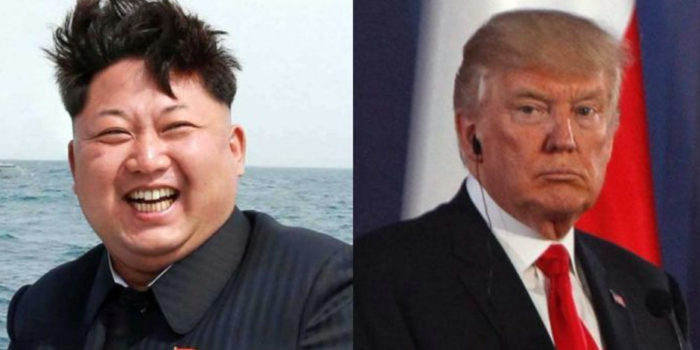Published in the Nikkei Asian Review 26/4/2018
Not long ago the world was quaking at the prospect of an outbreak of hostilities between the United States and North Korea, with the potential casualty toll rising into the millions. Now after the historic meeting of the leaders of the two Koreas in the demilitarized zone, the talk is of a deal to bring permanent peace to the Korean Peninsula.
If realized, that could well bring Nobel Peace prizes to the key actors. But is it realistic? Much depends on how and why such an accommodation was reached.
U.S. President Donald Trump has brought something new to the North Korean problem: the understanding, lacked by his predecessors, that it can only be tackled as an element in the larger US-China relationship. Playing bad cop and good cop simultaneously seems to have produced some results. It is reliably reported that Beijing ordered dramatic cuts in fuel, food and maintenance supplies to North Korea earlier this year and deployed troops near border areas in readiness for a collapse scenario.
After North Korean leader Kim Jong Un agreed to meet Trump in an unprecedented bilateral summit, he was summoned to Beijing, presumably to be prepped on what to say. Chinese President Xi Jinping had already told Trump by phone that it was time to end the sixty five year old truce and bring the Korean War to a formal end.
Understandably, there is deep scepticism in the financial markets and the policy-making community that change is in the offing. After all, runs the argument, North Korea has achieved much of its goal of developing a nuclear capability. Why should it make any concessions to the United States and its allies at this stage of the game? Left to its own devices, it surely would not. But under serious pressure from Xi Jinping, it would have no choice but to agree.
China’s incentive to force change would be strategic, coming from a recognition that the status quo is not sustainable. The existence of a nuclear-armed, independent North Korea will ultimately lead to others following suit. And “ultimately” may not be that far away.
The Ishiba Effect
Japanese Prime Minister Shinzo Abe has seen his popularity slump in recent months and there is now some doubt as to whether he will win a third term as party leader, and hence prime minister, in the intra-party election due this September. The favourite to succeed him amongst the general public is Shigeru Ishiba, an ex-Minister of Defense and a noted hawk. Ishiba wants a broad revision of Japan’s U.S.-imposed pacifist constitution, rather than the minimalist changes that Abe has proposed.
More to the point, he has publicly called for a debate on U.S. nukes being deployed on Japanese soil and favours Japan’s maintenance of nuclear weapons manufacturing capability. Ishiba is unusual in that he says what he believes. Officially, Japan adheres to its “three non-nuclear principles” – not to make, possess or allow the introduction of nuclear weapons. These principles have no legal standing and the Japanese establishment’s support for nuclear energy and, indeed, the scandal-ridden Toshiba – an important nuclear energy and defense contractor – suggests that he is far from alone in his thinking.
This time next year Beijing could be facing a Trump-Ishiba double act and looking back in nostalgia at the Abe years. But the blowback from sanctioning North Korean adventurism would not stop there. A continued North Korean threat would mean the end of the Anti-Proliferation Treaty as a credible mechanism and incentivize other regional powers to develop their own capability, leading to a nuclear-armed South Korea and, China’s worst nightmare, Taiwan.
China would undoubtedly demand a substantial quid pro quo for co-operation. Thus, Korean reunification would be off the menu, though a Hong Kong-style 50 year delay might be acceptable. Over the intervening period, China would call the shots on North Korean political and economic matters and take the lion’s share of the investment opportunities.
If the North Korean threat were credibly defused, there would be little justification for the continuing presence of American troops in South Korea and Japan would become the sole host of American forces in East Asia. South Korea is already much more leveraged to the Chinese economy than Japan is and over time would probably drift into the Chinese sphere of influence.
Shorter-term, the atmospherics of Sino-American relations would change for the better. There would be no more threats of a trade war, and concerns about other aspects of Chinese behavior, such as theft of intellectual property, would be dialed down. The deployment of America’s THAAD (Terminal High Altitude Area Defense) anti-missile system in South Korea, which caused so much angst in Beijing last year, would likely be reversed.
If the U.S. and China could work together on such a thorny issue as North Korea, might that not open the way to a larger rapprochement? At first sight an attractive prospect, that might ultimately have negative implications for U.S. allies in the region, who might find themselves the object of other quid pro quo deals. For the time being, however, any relaxation of tensions would be viewed positively.
Could it lead to Trump and Kim going to Oslo to collect the Peace Prize from the Nobel Academy? Well, stranger things have happened – such as a nation of twenty million people with a GDP per head lower than Haiti’s threatening the U.S. with nuclear attack and a reality TV star becoming president of the United States.
One thing is for sure – it would be the best Nobel prize ever.
